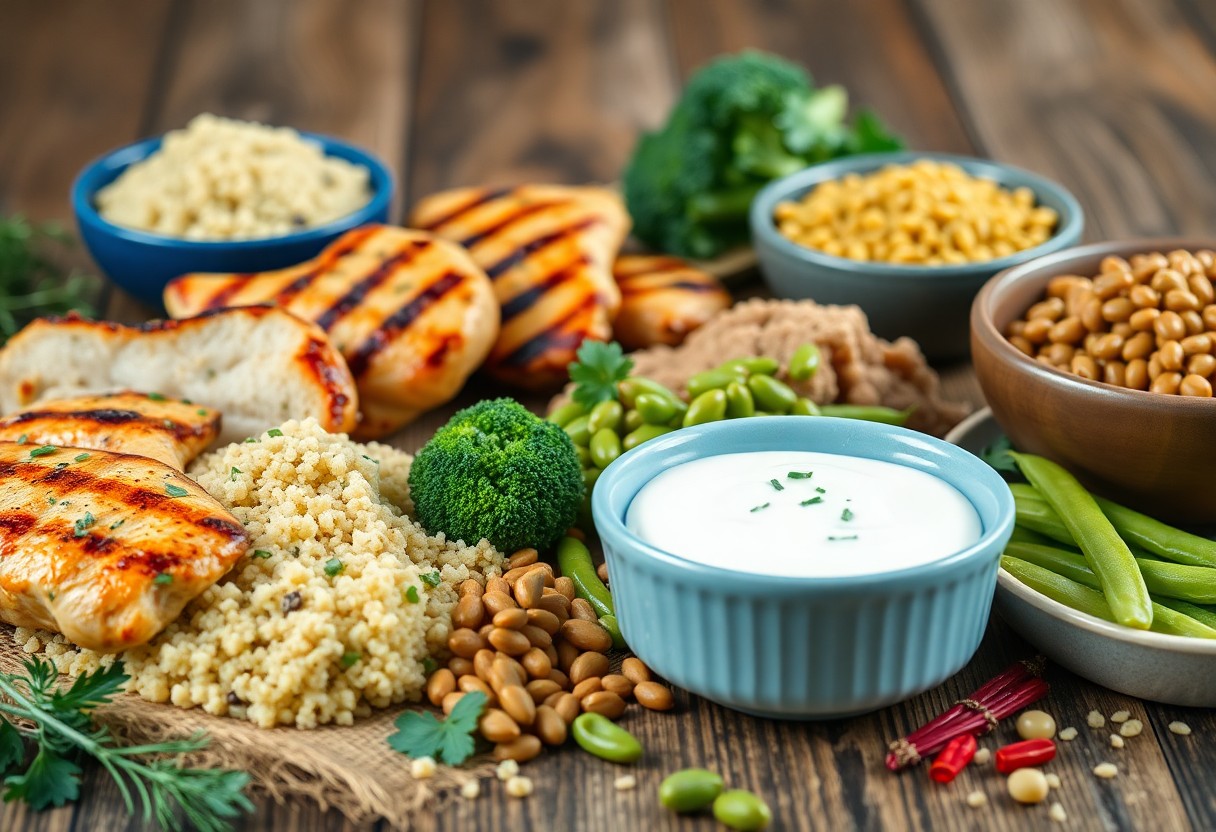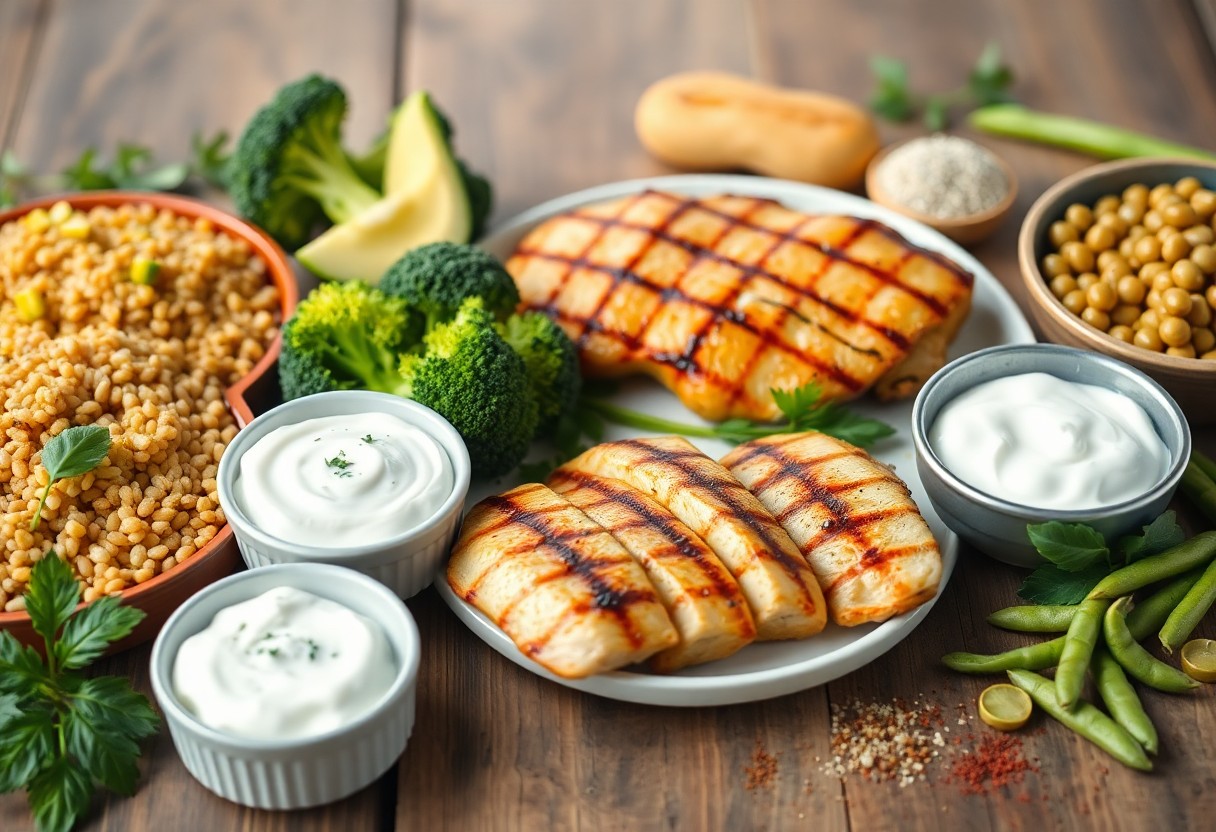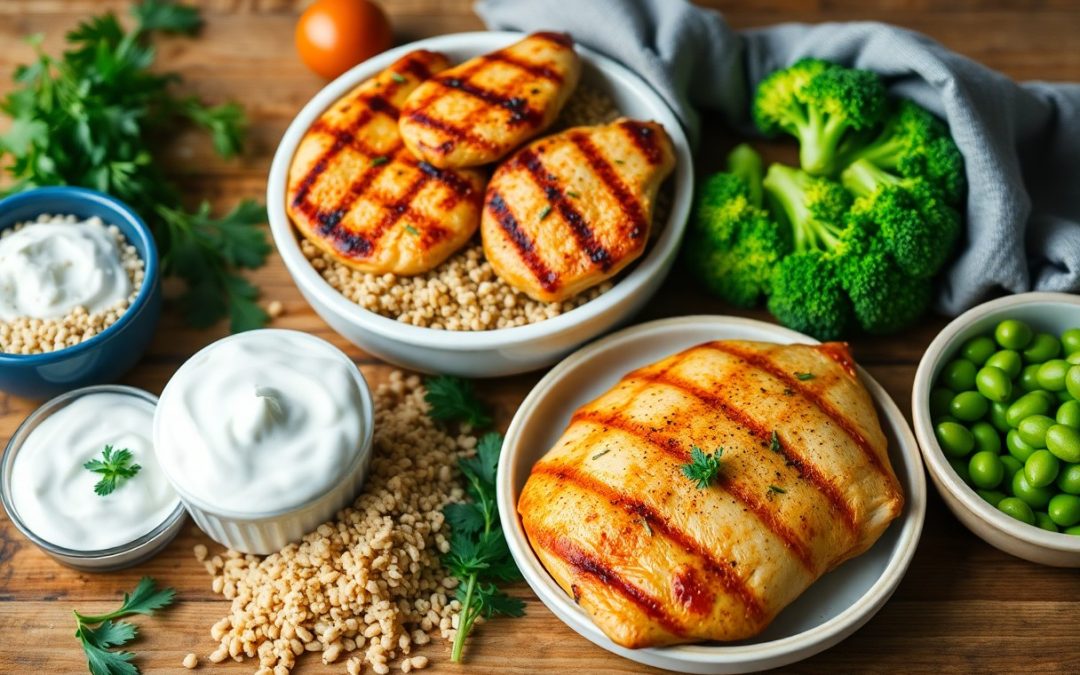You can enhance your overall health and achieve your fitness goals by incorporating low-calorie, high-protein foods into your diet. These foods are instrumental in maintaining energy levels while helping you feel fuller for longer, making them ideal for weight management. In this post, you’ll discover 21 excellent options that provide a protein punch without excessive calories, allowing you to make informed choices for your meals.

Importance of High-Protein Foods
Your body relies on protein for various vital functions, including muscle repair, hormone production, and immune support. Incorporating high-protein foods into your meals can help you maintain muscle mass while losing or managing weight. With options like skinless chicken breast and low-fat Greek yogurt, you can effectively boost your protein intake without excessive calories. Research indicates that protein can enhance satiety, making you feel fuller for longer, which is particularly beneficial when striving to create a balanced diet tailored to your health goals.
Key Benefits of Low-Calorie Proteins
For anyone looking to enhance their diet, incorporating low-calorie, high-protein foods can be highly beneficial. These proteins help you meet your nutritional needs without excessive calorie intake, making them ideal for weight management and muscle building. Items like skinless chicken breast, low-fat Greek yogurt, and lentils provide important nutrients while keeping your calorie count in check. By focusing on these protein sources, you can support your overall health and maintain your energy levels throughout the day, all while adhering to your dietary goals.
Top 21 Low-Calorie, High-Protein Foods
The combination of low-calorie and high-protein foods can greatly enhance your diet, helping you to manage your weight while meeting your nutritional needs. These foods are not only beneficial for muscle maintenance but also for overall health, allowing you to stay energized and satisfied. Explore your options to find diverse choices that you can easily incorporate into your meals.
Poultry Options
Behind many successful diets are lean poultry options like skinless chicken and turkey breast, which provide high-quality protein with minimal calories. These proteins can be easily seasoned and cooked in various ways, making them versatile staples for your meals.
Seafood Selections
To broaden your protein choices, consider adding seafood selections such as shrimp, cod, and scallops. These options are not only rich in protein but also provide healthy fats and imperative nutrients, making them excellent additions to your meals.
Poultry and seafood are fantastic sources of lean protein. For example, shrimp packs a punch with approximately 24 grams of protein per 3-ounce serving, while fish like cod and halibut are low in calories. Incorporating these into your diet can help you meet your protein goals without exceeding your calorie limits.
Plant-Based Proteins
Low-calorie plant-based proteins, such as lentils, chickpeas, and beans, offer excellent nutritional value. These options are not only high in protein but also packed with fiber, aiding digestion and keeping you full for longer.
Also, combining various plant-based proteins can yield a complete amino acid profile, making them ideal for those following a vegetarian or vegan diet. Foods like quinoa and tempeh are excellent examples of how you can enrich your meals with both protein and imperative nutrients.
Dairy Choices
Across your diet, low-fat dairy options like Greek yogurt, cottage cheese, and skim milk provide a delicious way to increase your protein intake. These foods can be enjoyed on their own or added to smoothies, parfaits, and baked goods.
For instance, low-fat Greek yogurt has around 10 grams of protein per serving while remaining low in calories. Incorporating dairy into your meals can enhance your overall nutrient intake and help you achieve your protein needs effectively.

Tips for Incorporating These Foods into Your Diet
Keep your meals nutritious and satisfying by incorporating low-calorie, high-protein foods into your daily routine. You can easily include these foods in various meals, such as:
- Add skinless chicken or turkey breast to salads or wraps for a protein boost.
- Swap regular yogurt for low-fat Greek yogurt in smoothies or as a snack.
- Use lentils and beans in soups and stews to elevate your dishes.
- Incorporate egg whites into your breakfast omelets for a lean option.
Knowing how to blend these proteins seamlessly into your meals can enhance your overall health while effectively managing your diet.
Meal Preparation Ideas
To effectively incorporate low-calorie, high-protein foods into your routine, consider preparing meals in advance. Start by grilling or baking skinless chicken or turkey breast, which are great lean protein sources. Pair these with legumes like lentils or chickpeas for added fiber and nutrients. You can also create easy breakfast options with low-fat Greek yogurt or egg whites, providing a protein boost to kickstart your day. Batch-cooking quinoa or brown rice allows you to have a healthy base ready for meals, making it simple to enhance your diet with high-protein options throughout the week.
Common Questions about Protein Intake
Now, it’s important for you to understand how protein plays a vital role in your overall health and dietary goals. Aiming for high-protein, low-calorie foods can help you maintain or lose weight while building muscle. For instance, options like skinless chicken breast, low-fat Greek yogurt, and lentils not only provide protein but also keep your calorie intake in check. As you plan your meals, strive to incorporate these foods into your diet to meet your protein needs effectively.
To wrap up
As a reminder, incorporating low-calorie, high-protein foods into your diet can enhance your health and support your goals. By focusing on options like lean meats, legumes, and low-fat dairy, you can effectively boost your protein intake without excess calories. This strategy not only aids in weight management but also contributes to muscle building and overall wellness. Make informed choices and enjoy a diverse range of these nutritious foods to optimize your diet.


